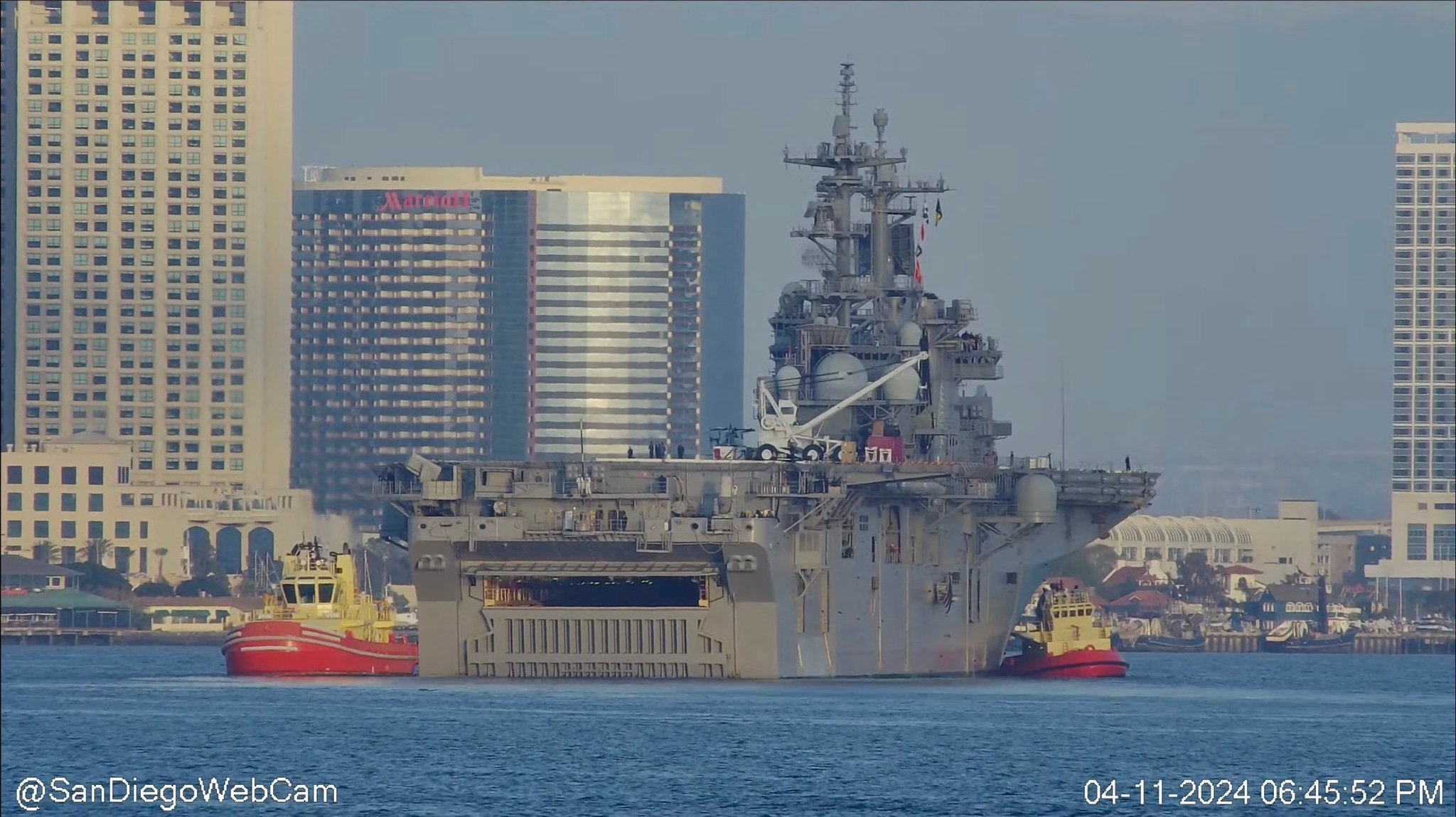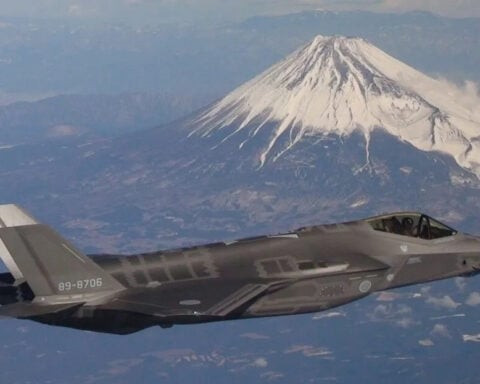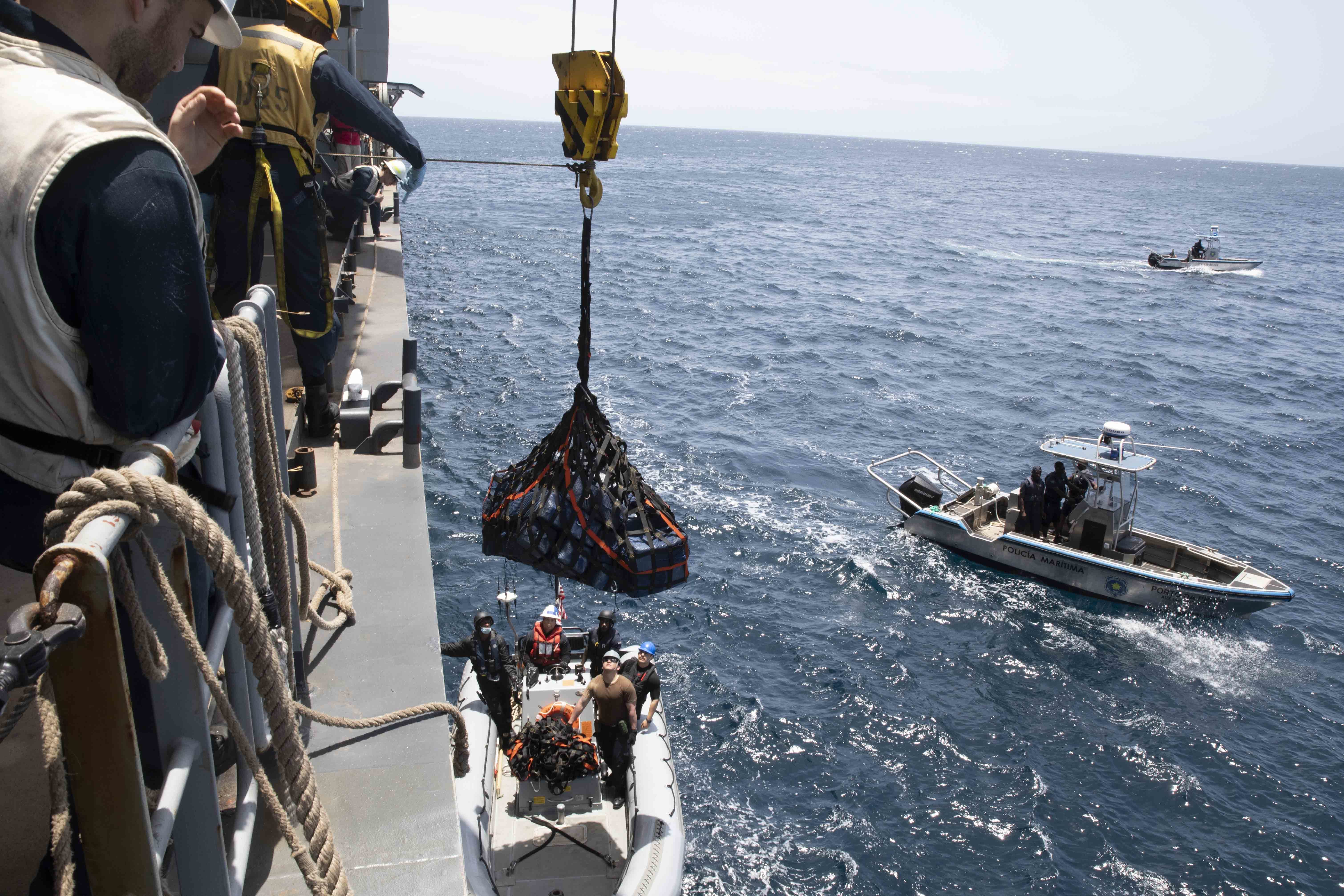
The deployment of USS Hershel “Woody” Williams’ (ESB-4) deployment off the West Coast of Africa allowed forces from Sierra Leone, Cape Verde and Senegal to the U.S. ship as a base of operations for local missions.
Using Williams allowed the forces to develop their own solutions to the maritime security problems that they faced, Capt. John Tully, the director of African Engagements for U.S. Naval Forces Africa (NAVAF), and Capt. Michael Concannon, the commanding officer of Williams, said in a media call.
“Our priority when we’re working with African countries is to assist our partners in helping them develop African-led solutions to the security challenges that they face, and we’re very conscious that we do not put our partners in the position that requires them to choose between working with the United States and other external actors when determining the best way to protect their own sovereign and economic interest,” Tully said.
Maritime security operations conducted by Williams during its recent deployment were all partner-led operations, Concannon told reporters.
“We gave them a lot of support that they needed to conduct the operation but it was their operation, it was their law enforcement process that went through the determination of the scope of the problem and what to do with it, judicially, legally and we were happy to be a part of that support,” he said.
From March to April, Williams completed maritime security operations with African partners Sierra Leone, Cape Verde and Senegal. In March, the joint U.S. and African maritime team interdicted an illegal, unregulated and unreported fishing vessel operating in Sierra Leone’s Economic Exclusive Zone (EEZ).
On April 1, as part of the African Maritime Law Enforcement Partnership, the joint team, led by Cape Verde, worked in coordination with the Maritime Analysis and Operations Centre – Narcotics, INTERPOL and Cape Verde’s national Maritime Operations Center to conduct a compliant boarding of a Brazilian-flagged fishing vessel, which led to the seizure of approximately 6,000 kilograms of suspected cocaine with an estimated street value of more than $350 million.
The flexibility and capabilities of Williams makes it ideal for maritime security operations in Africa, said Concannon, pointing to the ship’s ability to operate helicopters and store small craft on its mission decks. The ESB also has extensive logistic transport capabilities, personnel embarkation capabilities and endurance in conducting operations for a long period before requiring refueling.
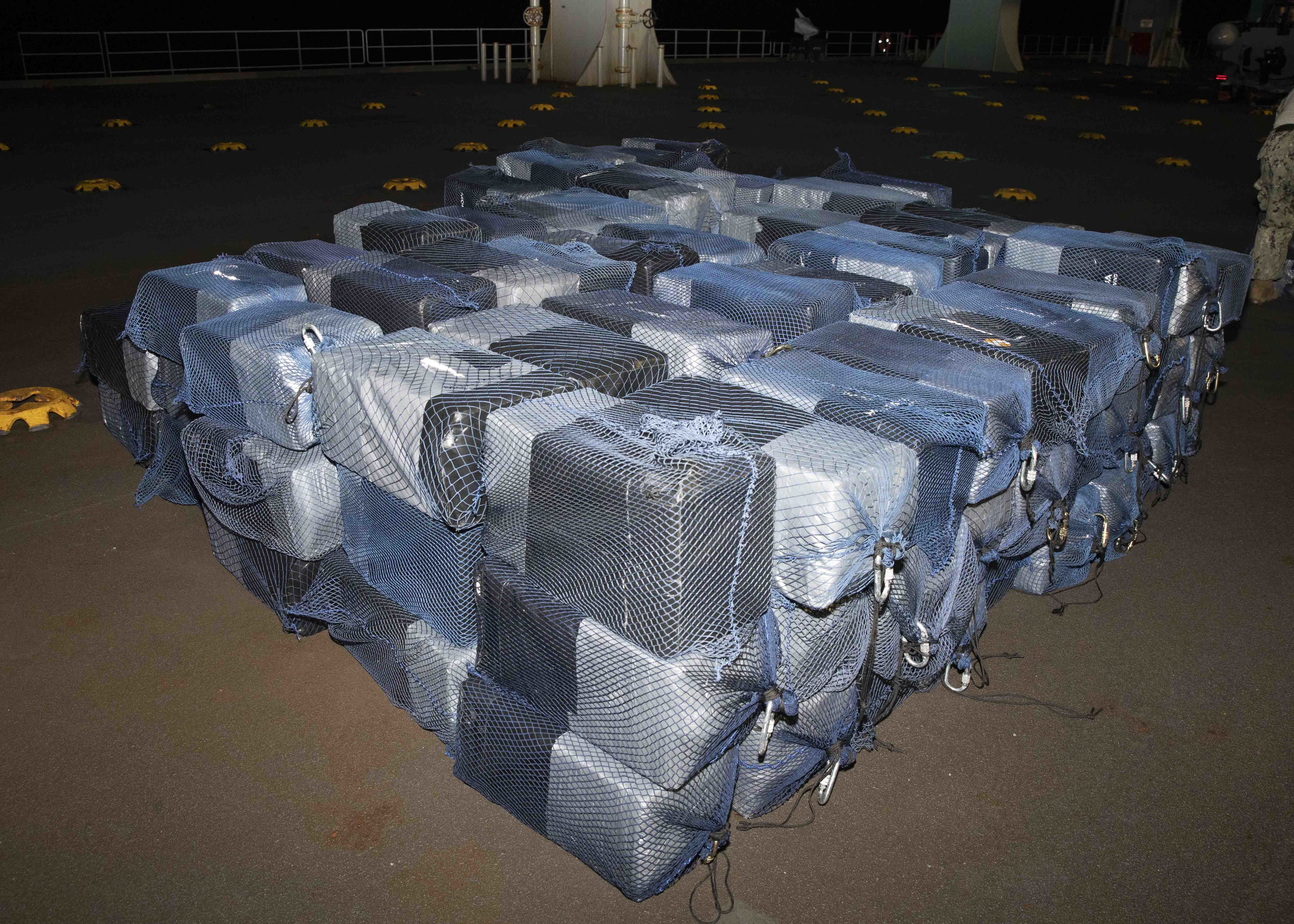
Concannon added that the deployment allowed representatives of three African countries to participate and collaborate with Williams and that he hoped future deployments would have a more expanded number of countries embarked on the ESB.
Williams operating in the region allows African nations to overcome the difficulty of using surface vessels to patrol their EEZs and enforce their laws, Tully said.
“By having the African partners onboard the Hershel “Woody” Williams as we did this time, we can help them overcome that challenge,” he added.
Tully said that a key aspect in assisting African partners in enforcing their laws in the maritime domain has been the bilateral law enforcement agreements that the U.S. has with African countries. These agreements allow the U.S Coast Guard to have a direct and concrete effect in the rule of law in the maritime domain of the countries that have agreements with the U.S.
Efforts supporting partners in the region span a wide gamut, ranging from various maritime security exercises and operations, the provision of equipment such as radars and automatic identification systems, supporting and assisting countries with their maritime enforcement centers, and institutional capacity building, Tully said. The initiatives are geared toward the end goal of allowing African partners to improve their capabilities and build maritime security relationships with other African countries through U.S.-supported joint engagement and exercise activities, he noted.
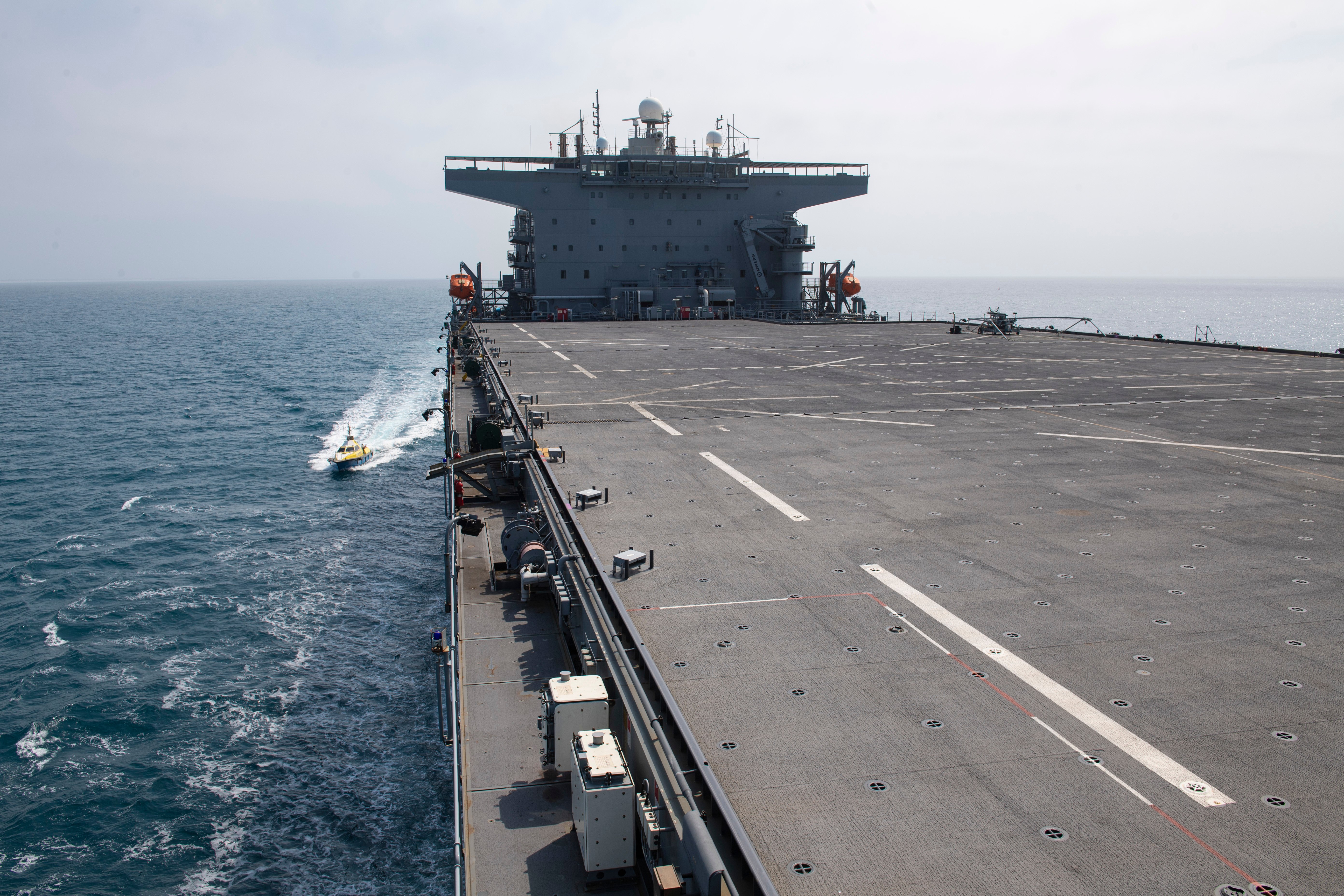
Although Williams is now currently back at Rota, Spain, Tully said the U.S. Coast Guard is expected to deploy a cutter to Africa later this year and noted the ESB’s departure from the region does not mean it won’t return soon.
He acknowledged the limitations of having one ESB assigned to Africa include the ship’s inability to be everywhere at once, especially since there are regions competing with Africa, like the Mediterranean Sea and the Indian Ocean, for operations. But the deployment choice was always determined based on discussions with African partner nations.


